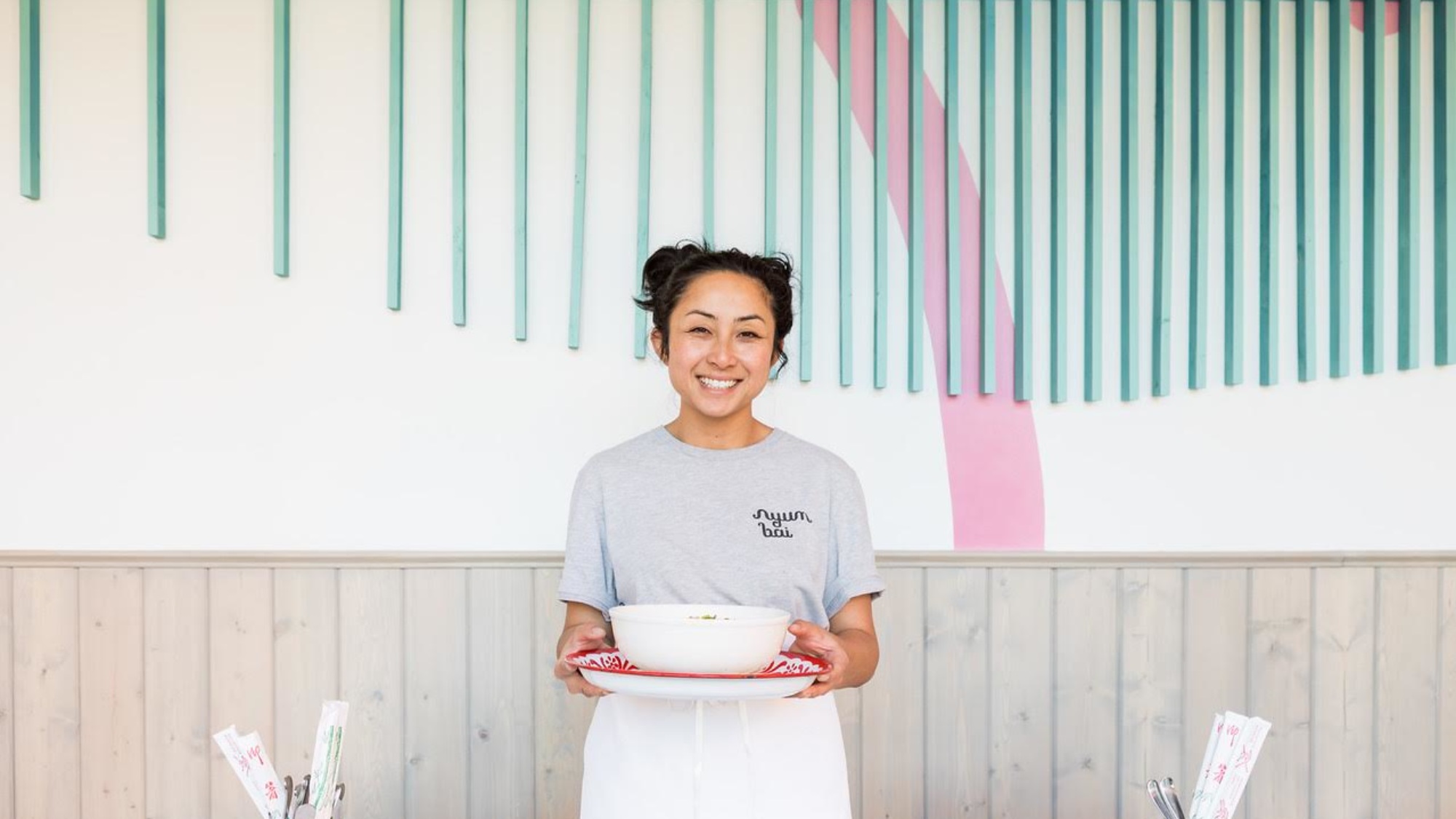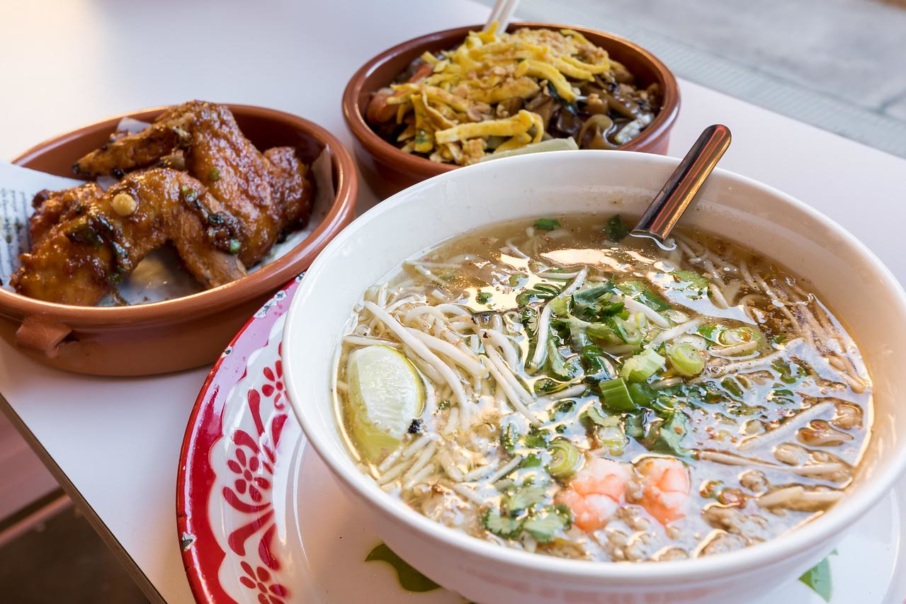Nyum Bai
Fruitvale District
Close

The Road Back San Francisco Oakland
Nite Yun knows that in order for her two-year-old restaurant to survive the coronavirus pandemic, she, like many other chefs and restaurateurs, will have to make some major changes.
Nyum Bai, her critically acclaimed Oakland restaurant, won’t be the same as it once was before COVID-19. When it reopens this summer — June 10 is the expected date — for takeout and delivery, it will be a fast-casual concept with a bodega-style takeout kiosk and a market selling pantry items.
“I’m excited for that,” said Yun. “We will continue to play Khmer rock ‘n’ roll tunes and guests will get to order from a completely new menu. For now, my team and I will do our best to create a cool, fun, and safe takeout experience. Our mission and our passion is to still provide quality, comforting Cambodian food.”
Here’s what Yun had to say about how she’s dealing with the current crisis, as well as her hopes for how the restaurant business can be more sustainable for chefs, operators, and workers going forward.
***
Resy: What’s your day-to-day like during this time?
Yun: Nyum Bai is temporarily closed to the public. In the meantime, we are cooking for frontline workers. This opportunity has been wonderful because I’ve been able to rehire my sous chef and two of my undocumented workers.
My day-to-day has been really trying to adapt to this strange time. A lot of things are uncertain. Despite this horrible and unfortunate time, I’ve been able to reset and truly think about what the future of Nyum Bai will be.
It will take time for people to adjust to post-COVID. I imagine that not everyone will all want to dine in at a restaurant immediately. It would still be weird.
So, I think takeout, delivery, and meal kits make the most sense. When restaurants are able to open it will only be at 50% capacity; that is definitely not sustainable.

What do you need for Nyum Bai to survive (and thrive)?
I need the government to understand that small businesses are vital to the economy. I feel like we are the neglected middle child.
Restaurants not only create jobs, but they also serve as community spaces. They are the places where the community comes and connects and celebrates special life events, and so much more.
I need loans and grants that would actually benefit restaurants. I’m still paying off the loans from when I opened up Nyum Bai a few years ago. Do I accumulate more debt?
The PPP loan sounded promising, but it is flawed for small businesses. How does one employ 75% of their staff when business is down by 50%?
There should be incentives for landlords to lower the rent. Perhaps there could be a lower property tax rate, or they would be able to work with tenants to offer rent forgiveness with the help of the government.
We should also have programs for undocumented workers where they feel safe to go to the hospitals and find ways for them to become citizens.
What would you want diners to know or understand about what’s happening in the restaurant industry right now?
Running a restaurant is not as glamorous as it seems; it’s extremely hard work. Without a doubt, it is brutal working in restaurants with the long hours, mandatory shifts on weekends, and the high levels of stress. I think diners do know and understand this aspect of the industry.
But what truly needs to be understood are all the other behind-the-scenes things. Operating a restaurant has many components. In order to get the food to the table, we have to consider the farmers, the meat purveyors, the fishmongers; they all have to get paid, too.
Providing the staff with health insurance, paying the staff a living wage, and then, on top of that, there are all sorts of taxes we have to pay. Restaurants are left with 5% profit if they’re lucky. That’s considered a good year.
It costs a lot of money to run a restaurant. I wish people would understand food costs and labor costs when they complain that the menu is priced too high. We cook because it’s our passion, but it doesn’t mean we have to work 15-hour work days and get paid just enough to survive.
I hope diners understand that restaurants continue to run on razor-thin margins. I hope they consider all the different aspects of operating a restaurant before questioning the cost of the food that was prepared for them.
I hope we all learn to protect and find ways for restaurants to be more sustainable.

Is the pandemic acting like a reset button for you, or for the industry, in some ways?
Completely. It was such a crazy and intense few years at Nyum Bai. I was burnt out, but I kept on going. When shelter-in-place was mandated, I had no choice but to slow down.
I now have time to reflect on the changes, what’s important, and how to come out of this stronger and more content.
I would hope this resets the industry, too, because it’s exposing how difficult it is to run a restaurant. To make it more sustainable, we have to look at the bigger picture. The changes have to start from the top; the system is broken.
Do you still want to be operating a restaurant after the pandemic ends?
There are so many uncertainties when you think about the future. I’ll just focus on my day-to-day; it’s what I’ve learned from this strange time. I can’t see myself being away from the kitchen for too long, though. I want to be a restaurant operator; it’s what brings me joy.
Deanna Ting is a Resy staff writer. Follow her on Instagram and Twitter. Follow @Resy, too.